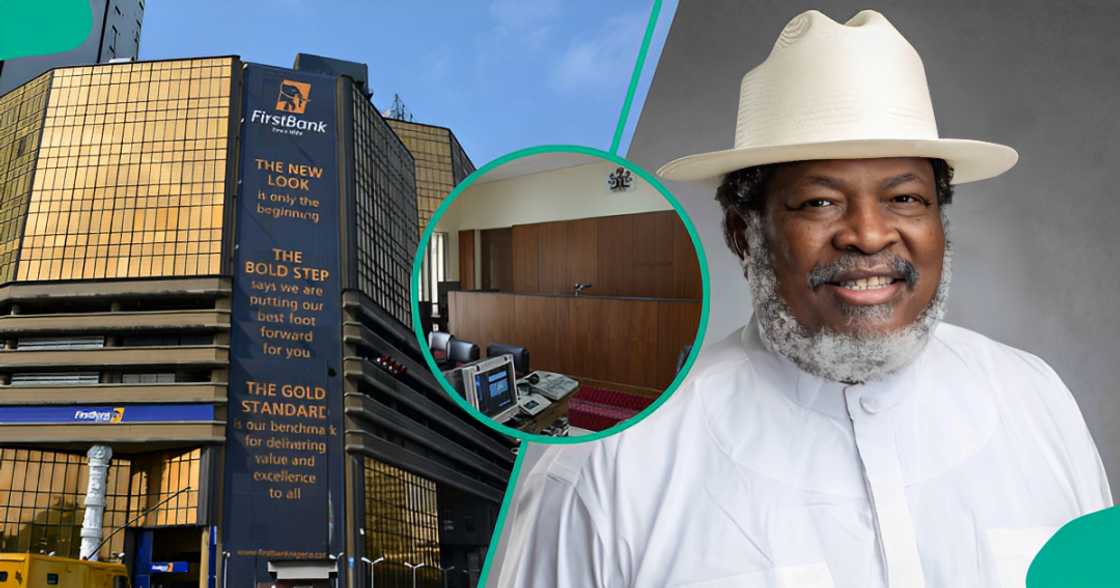A high-profile legal battle between General Hydrocarbons Limited, chaired by media magnate Nduka Obaigbena, and First Bank of Nigeria Limited has spotlighted procedural inconsistencies within Nigeria’s judiciary.
At the heart of the dispute are conflicting rulings from two judges of the Federal High Court, casting doubt on the enforcement of a $225.8 million debt claim.
The controversy began with an ex parte order issued on December 30, 2024, by Justice Deinde Dipeolu of the Federal High Court in Lagos.
This order froze the accounts and assets of General Hydrocarbons Limited across all Nigerian banks. It was secured by First Bank and FBNQUEST Trustees Limited, which allege that the company defaulted on a $225.8 million loan facility as of September 30, 2024.
However, General Hydrocarbons is contesting the December 30 ruling, citing an earlier judgment from Justice Allagoa of the same court on December 12, 2024.
Justice Allagoa’s ruling explicitly barred First Bank from enforcing the loan agreements or seizing any associated assets until ongoing arbitration is resolved.
General Hydrocarbons, through its legal counsel, Dr. A.I. Layonu (SAN), accused First Bank of deliberately concealing the December 12 judgment when seeking the ex parte order from Justice Dipeolu.
“This is a blatant case of abuse of court process by FBN, which sought to overreach our client by obtaining orders that directly contravene an extant ruling of the same court,” Layonu stated.
He further stressed that Justice Allagoa’s decision, which came after both parties were heard, remains binding as it has not been overturned on appeal.
The disputed loan is tied to OML 120, a critical oil and gas asset. Justice Allagoa’s December 12 ruling provided temporary relief to General Hydrocarbons by restraining First Bank from enforcing security interests or seizing assets related to the facility. Conversely, Justice Dipeolu’s December 30 order allows First Bank to freeze the company’s accounts and assets, escalating the conflict.
READ ALSO: FirstBank exits 100 senior executives in major shakeup in 2024
General Hydrocarbons has issued notices to all commercial banks, urging them to refrain from enforcing the December 30 order. The company warned of severe legal repercussions for any entity that acts on the contested ruling without court clarification.
“We are taking immediate steps to bring this contemptuous act to the court’s attention,” Layonu declared, accusing First Bank of undermining judicial integrity by securing conflicting orders.
This case has reignited concerns about procedural inconsistencies in Nigeria’s judiciary, particularly in high-stakes financial disputes. Legal analysts warn that conflicting rulings could undermine investor confidence and erode trust in judicial processes.
General Hydrocarbons has reaffirmed its commitment to arbitration, as stipulated in the loan agreement, and condemned First Bank’s actions as obstructing this process.
The case continues to draw attention as stakeholders and observers await a resolution. The outcome will determine the fate of General Hydrocarbons’ assets and could establish a critical precedent for addressing procedural conflicts within Nigeria’s judiciary.
Layonu concluded: “FBN’s deliberate omission of the December 12 judgment in its subsequent application before Justice Dipeolu is a troubling exploitation of the judicial system, one that must be addressed to uphold the rule of law.”
The unfolding legal drama serves as a litmus test for the judiciary’s ability to ensure fairness, consistency, and respect for due process in complex financial disputes

 Entertainment1 week ago
Entertainment1 week ago
 Business7 days ago
Business7 days ago
 Football1 week ago
Football1 week ago
 Business1 week ago
Business1 week ago
 Health1 week ago
Health1 week ago
 Latest1 week ago
Latest1 week ago
 Entertainment1 week ago
Entertainment1 week ago
 Football7 days ago
Football7 days ago

